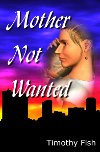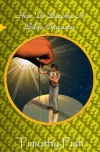
And Thy House
Extra Feature: High Res Image

History of
Cane Creek
Association
by D. F. Magruder
Christians and Banned Books - Part 2
Written By: Timothy Fish Published: 9/30/2007
Last time, we looked at part of the reason why the First Amendment was created. Without the freedom to worship as we please, say what we wish and print what we like, we would be subject to the opinions of the majority in all things. New ideas and ways of doing things would not be possible because those in power would stop anyone who opposed them. Today, I would like write concerning the benefits of an anything goes approach to books and then I will cover the issues of people opposing books for moral reasons in a later article.
The Freedom to Say What Is Needed
The interview that caused me to start thinking along these lines asked a question about the percentage of books that libraries have banned. There are no accurate figures to tell us this, but I think it is safe to say that nearly any book that takes a stand on a controversial issue has someone who opposes it unless it does not have enough readers to become an issue. As we look at history, the book that people have banned more than any other is the Holy Bible.
As soon as a library opens the door to the possibility of banning any book it opens the door to the possibility of banning the Bible. When someone opposes a book, he is basically saying that he is unwilling to let other people read the book and consider its content with an open mind. This is part of the reason why the Bible has been banned in various places at various times. The people who have opposed it have been concerned that people will read it and decide to follow the teaching they find there rather than the teaching they are hearing other places.
Words are very powerful. The words in some books can change the world. When everyone is free to read any book, that person is free to examine the book, evaluate its content and learn what is needed.
The Issue of Who Decides
Who decides which books are needed and which are not? Often, the books that are being opposed are books that are in the public schools. Let us not even ask if the school is able to judge what appropriate reading for a parent’s child is. Instead, let us ask if it is the school’s responsibility to determine reading based on what is morally appropriate for the child. If so, who’s morals? Take the issue of Harry Potter for example. One parent may see nothing wrong with it while another parent may take issue with the types of characters that are in these books.
While I have great respect for those who serve our states by working as teachers, school administrators and school board members, I question whether we should place them in a position in which it becomes their responsibility to determine what is morally expectable for each child. More than that, the process of determining which books should and should not be purchased by a school is often heavily influenced by the extremists who are fired up enough to make sure that their voices are heard. Perhaps the best thing to do is to make it permissible for any book to exist and be in a library.
Other Issues
While an anything goes approach may sound like the best approach, there are other issues to consider before we can think about what a Christian should choose to do concerning banned books. As we continue, we will consider some issues that could make banning books a good thing as well as some issue that make it somewhat necessary.
www.timothyfish.com



